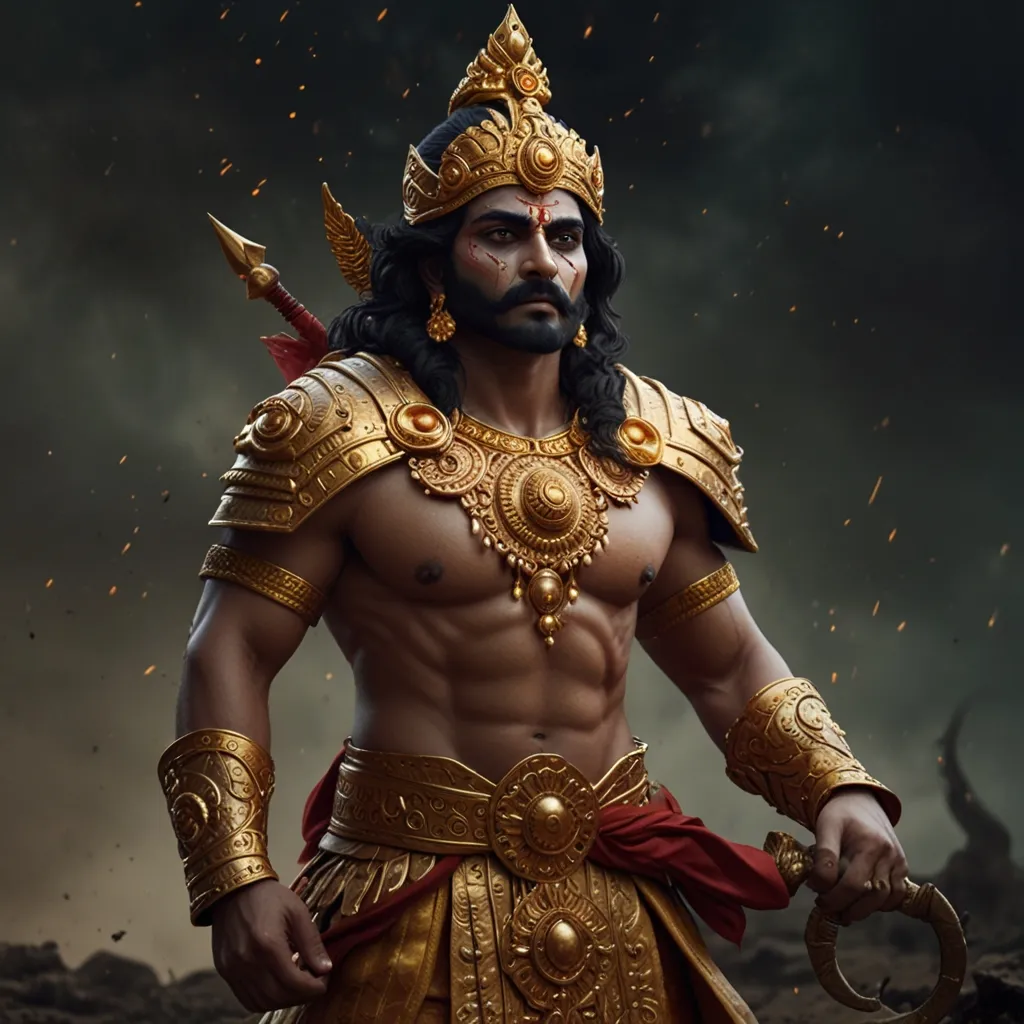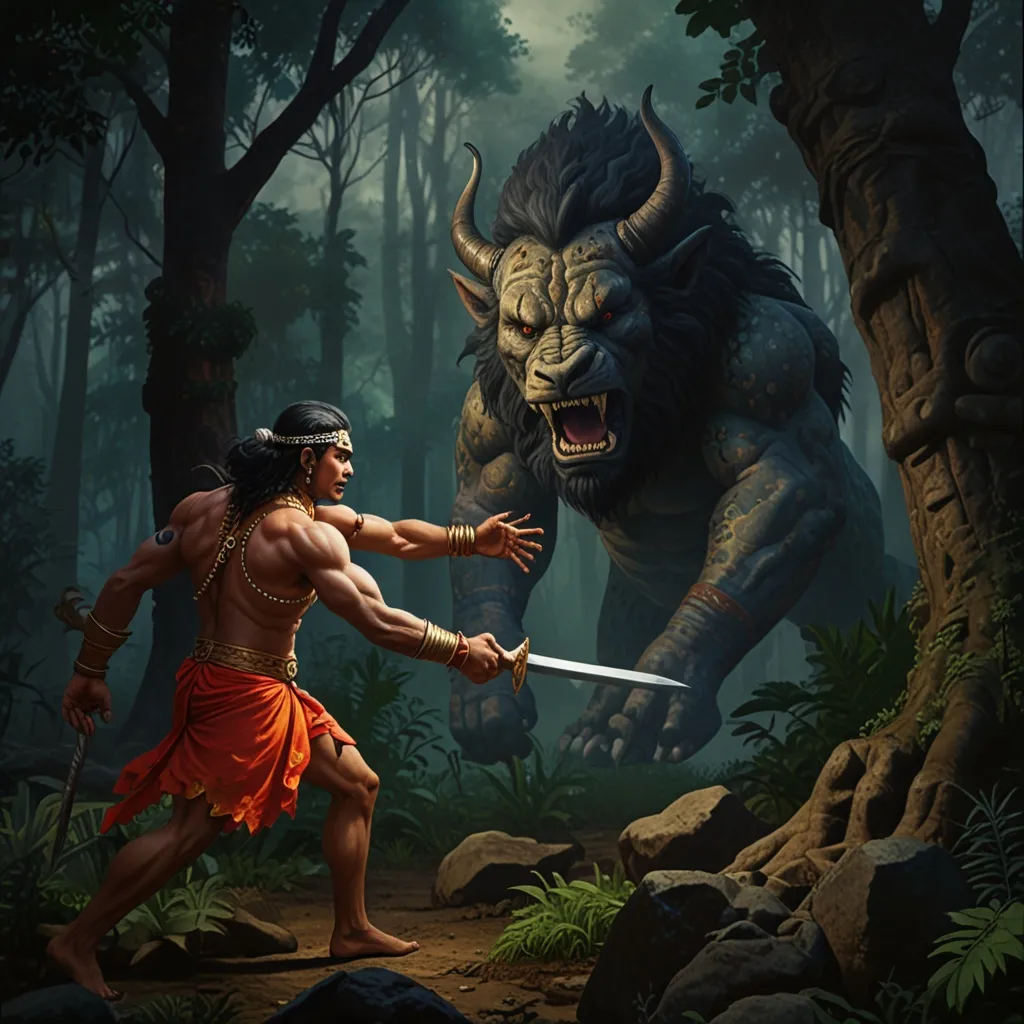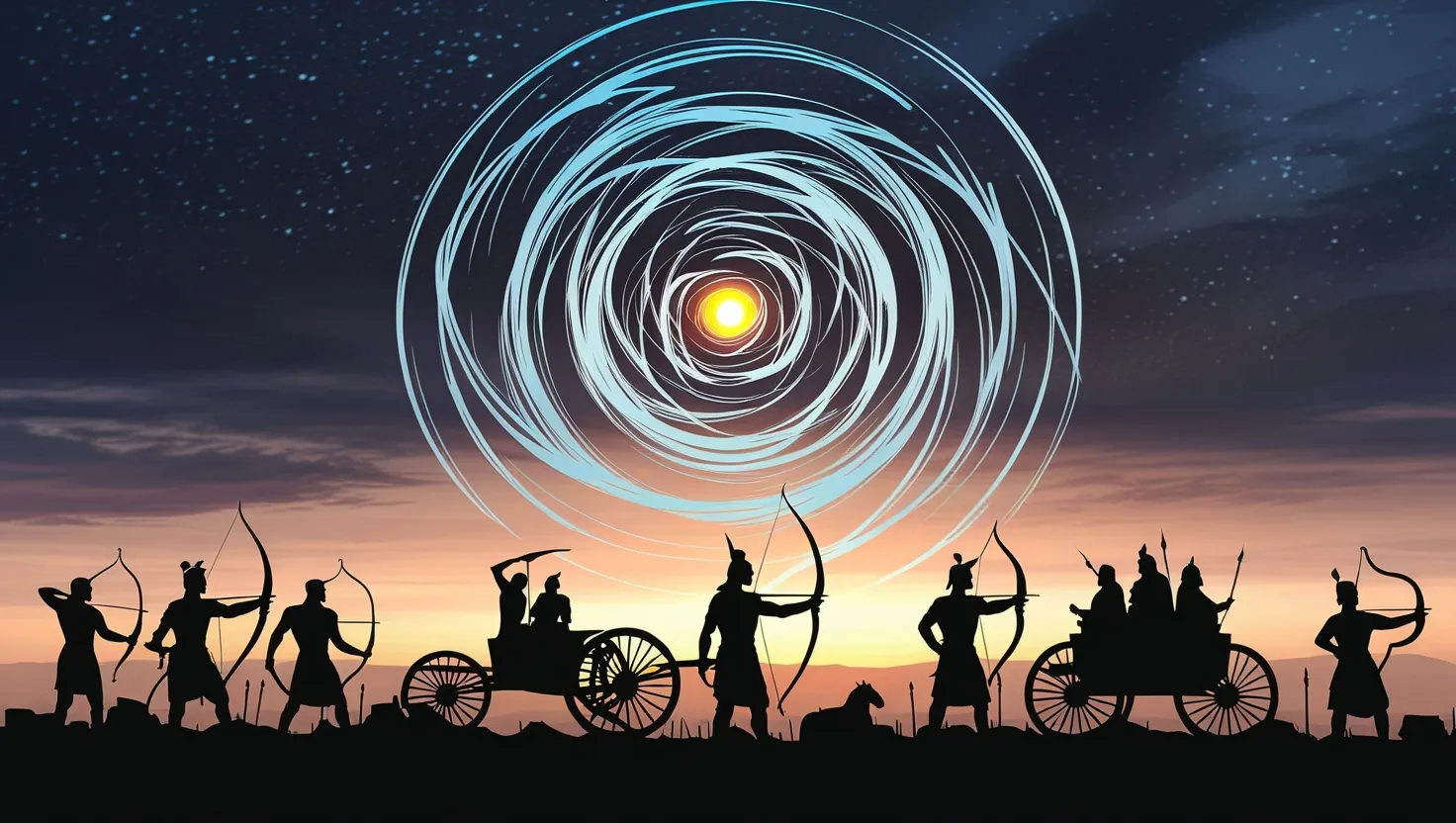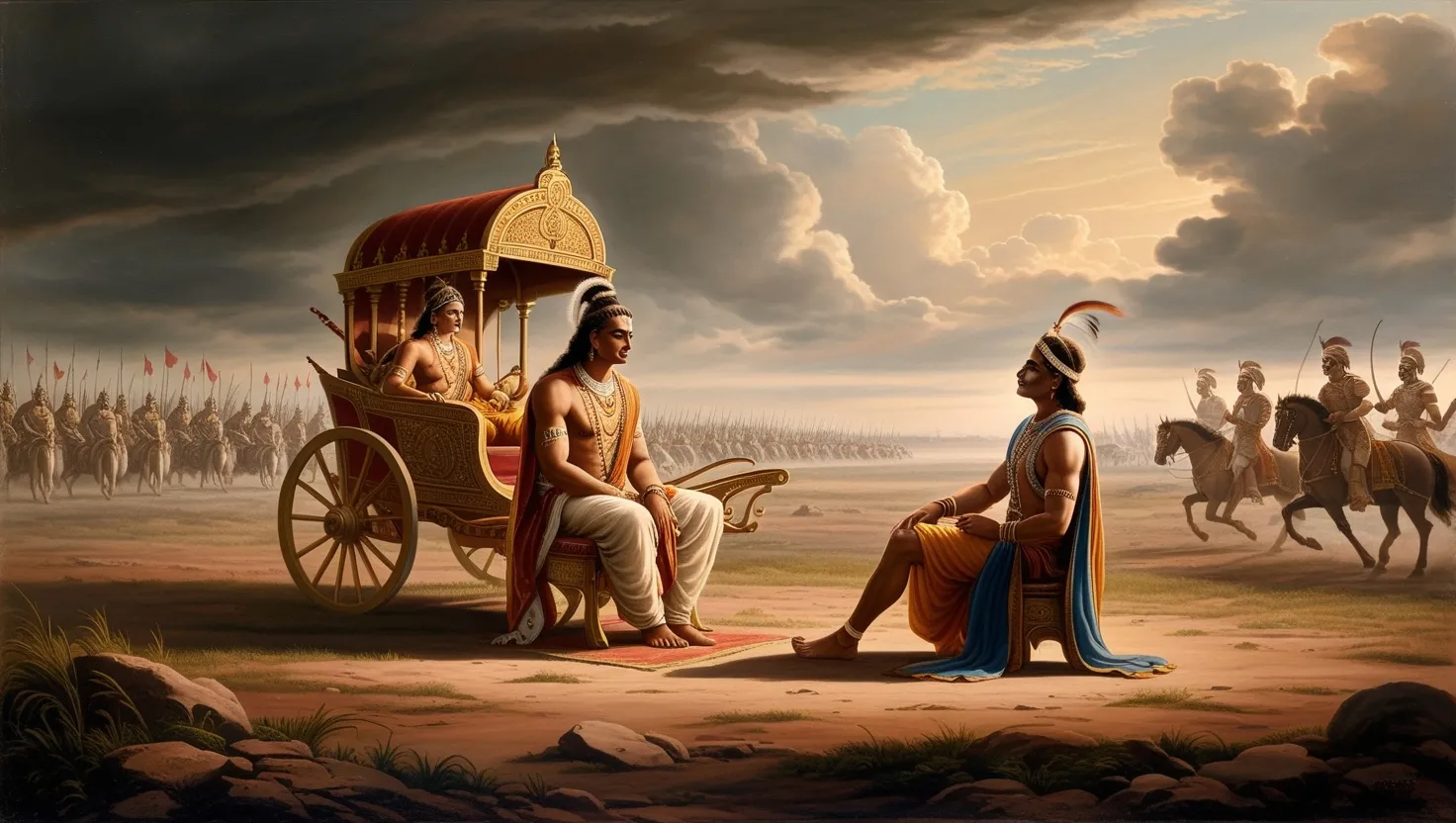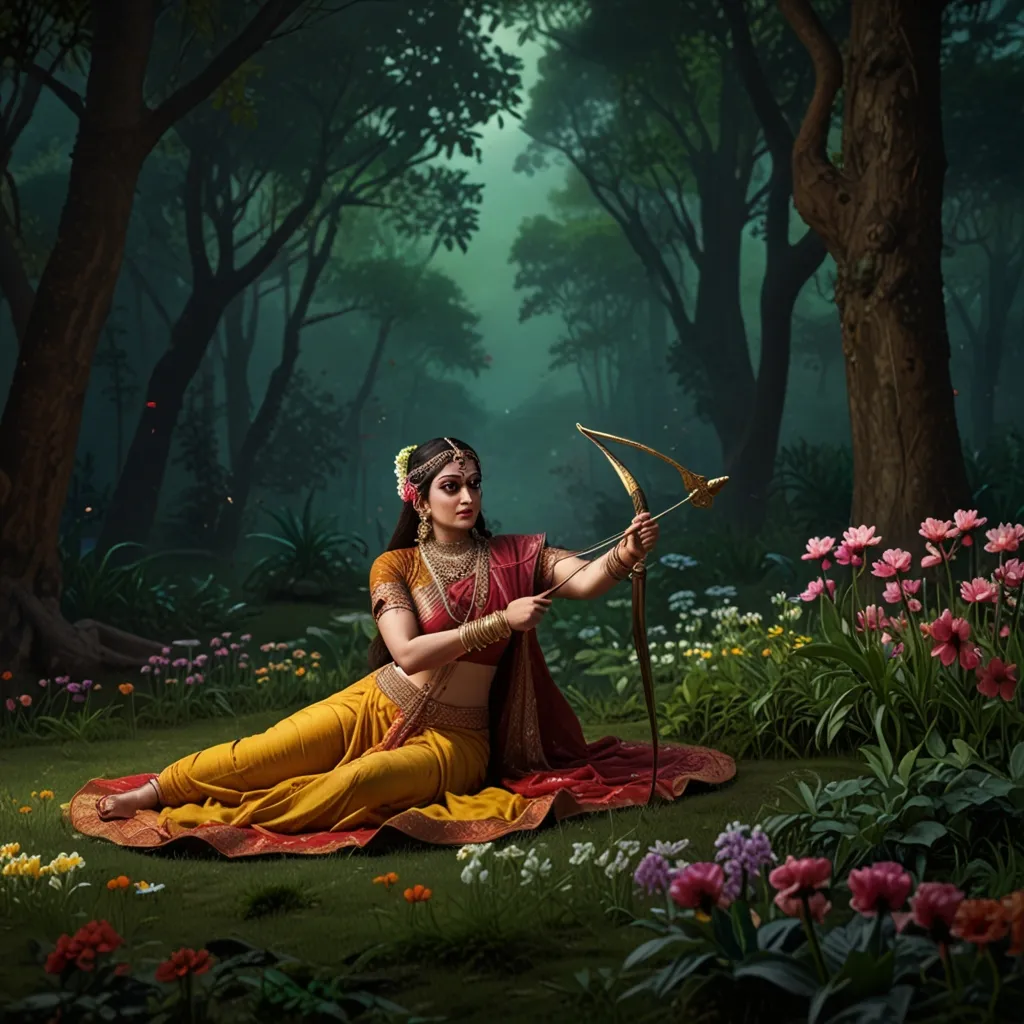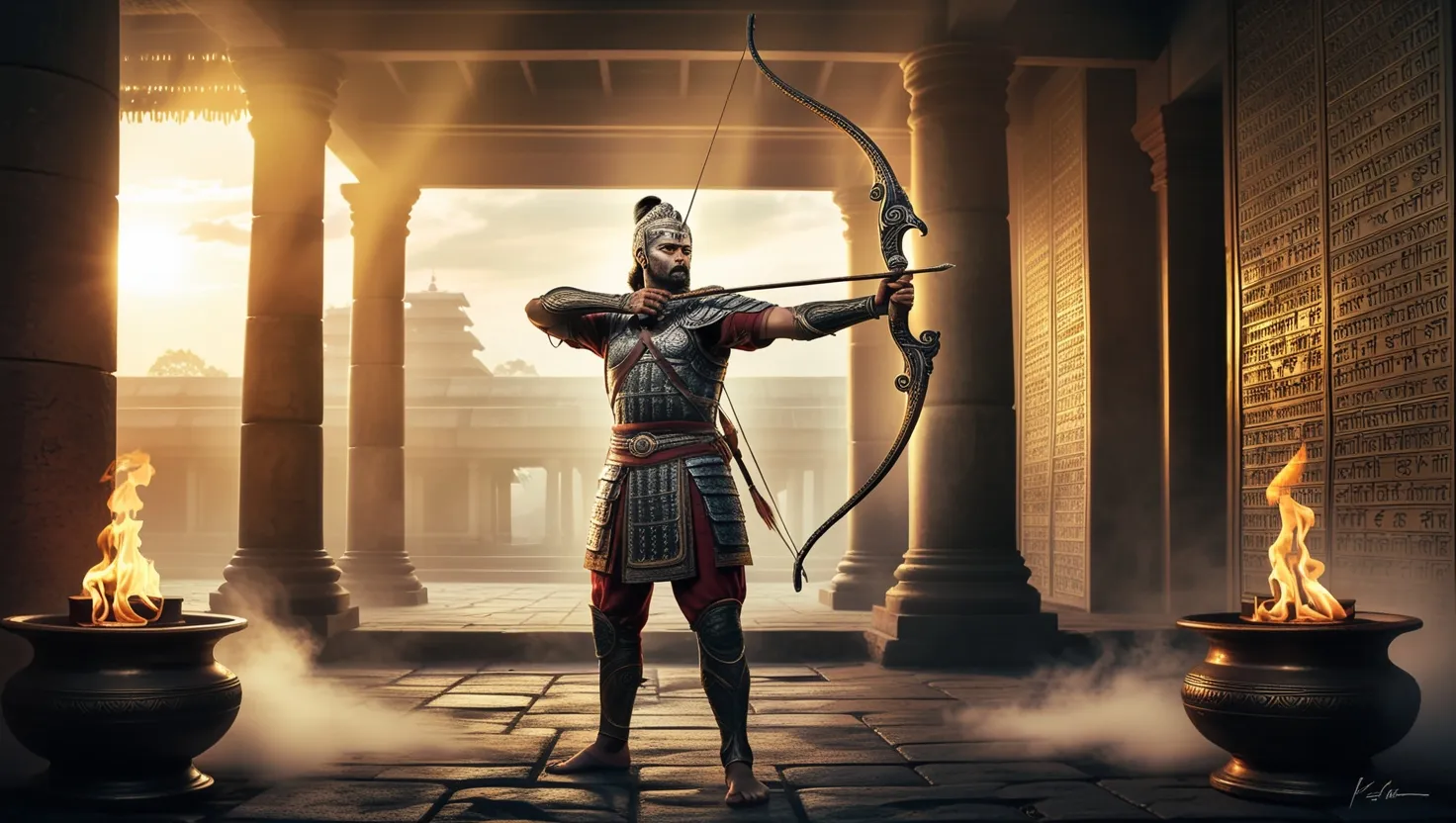The Mahabharata is an epic that has captivated readers for centuries, and one of its most intriguing and tragic figures is Karna. Born of divine lineage yet doomed by his fate, Karna’s life is a tapestry of divine birth, societal rejection, and exceptional heroism.
Kunti, a young princess, was blessed with a powerful boon by the sage Durvasa. This boon allowed her to summon any god and have a child possessing divine qualities. Curious and perhaps a bit naïve, Kunti decided to test this mantra and invoked Surya, the sun god. Surya appeared, assuring Kunti that her virginity would be preserved and no social stigma would follow her. Thus, Karna was born, gifted with impenetrable golden armor and divine earrings, courtesy of his father.
But societal norms were harsh, and the fear of being judged led Kunti to abandon her newborn. She placed Karna in a basket and set it afloat on the Ganges River, hoping for some divine intervention to save them both from disgrace. The basket was found by Adhiratha, a charioteer, and his wife Radha, who joyfully adopted the abandoned child and named him Vasusena. Despite his royal blood, Karna grew up in a humble environment, far from the regal comforts his lineage promised.
As he grew, Karna’s fascination with warfare and his determination to excel led him to Dronacharya, the renowned martial teacher. However, Dronacharya turned him away because Karna was not a Kshatriya warrior but the son of a charioteer. This rejection was a significant setback for Karna but did little to quell his ambitions.
Karna, resilient and resourceful, disguised himself as a Brahmin to train under Parshuram, another legendary warrior-sage known for his exceptional skills and strict adherence to caste rules. Karna’s deceit worked initially, and he trained rigorously under Parshuram’s guidance. Unfortunately, Parshuram discovered his true identity eventually. Feeling betrayed by Karna’s dishonesty, Parshuram cursed him, foretelling that Karna would forget the critical Brahmastra mantra at the most crucial moment in battle.
Despite these setbacks, Karna’s talent was undeniable. His exceptional skills caught the eye of Duryodhana, the eldest Kaurava, who was envious of the Pandavas. Duryodhana saw immense potential in Karna and made him the king of Anga, a gesture that cemented a deep bond between them. It’s worth noting that Karna’s loyalty to Duryodhana would later define much of his life’s trajectory.
Karna’s life was a blend of grandeur and sorrow. Known for his unparalleled generosity, he often gave away his most valued possessions. One famous instance is when he gave away his divine armor and earrings to Indra, who had disguised himself as a beggar. This act of unmatched charity stripped Karna of his invincibility, making him mortal.
The pinnacle of Karna’s story comes during the Kurukshetra War, where he fights against his own half-brothers, the Pandavas. His loyalty to Duryodhana never wavered, even though he knew the adversaries he faced were his own kin. In a heart-wrenching moment, Kunti reveals to Karna her true identity as his mother, imploring him to spare his half-brothers. Karna, moved yet resolute, promises to spare them, except for Arjuna, insisting on a fair battle.
The duel between Karna and Arjuna is one of the epic’s most exhilarating highlights. As the battle ensued, Karna found himself in a dire situation when his chariot wheel got stuck in the mud. In an act of chivalry, he paused the fight, attempting to free his chariot. This act of valor gave Arjuna the chance to strike a fatal blow, leading to Karna’s downfall.
Karna’s death is a profound testament to his character and the tragic circumstances of his life. He remains a beloved and revered figure in Hindu mythology, embodying virtues of courage, loyalty, and unyielding heroism. His story is a poignant reminder that even in the face of relentless adversity, one can maintain dignity and honor, leaving behind a legacy that transcends time.
Karna’s journey from divine birth to tragic death is a tale brimming with lessons about societal dynamics, loyalty, and personal integrity. His life paints a vivid picture of the complex interplay between destiny and free will, societal norms, and personal choices. Through his unwavering loyalty to Duryodhana and his exceptional generosity, Karna showcases the depth of human character in navigating the trials of life.
Imagine living a life constantly overshadowed by the knowledge that you are fighting your own family, torn by the secrets of your birth, and haunted by curses and societal rejection. Yet, despite these immense pressures, Karna stood tall, embodying the essence of a true warrior.
He lived his life with an unwavering sense of purpose and a commitment to his ideals, even when they conflicted with his own well-being. His interactions with the gods, especially Surya and Indra, further illustrate the intricate coordination between mortal life and divine intervention, making his story not just a tale of heroism but also a dialogue on human suffering and divine justice.
So, when you delve into the epic saga of the Mahabharata, remember Karna not just as a character but as a symbol of resilience and generosity. His life and actions set a benchmark for what it means to uphold one’s values in the face of relentless adversity. In the tapestry of heroes and villains woven into the Mahabharata, Karna’s story shines as a beacon of noble suffering and unparalleled generosity, offering endless inspiration and reflections for anyone who dares to look beyond the surface.
Karna’s journey is not just a narrative from ancient texts but a timeless lesson in the power of character and the profound impact of our actions on our legacy. Whether encountered in scholarly discussions or casual storytelling, his life remains an enthralling testament to human endurance and moral fortitude.
